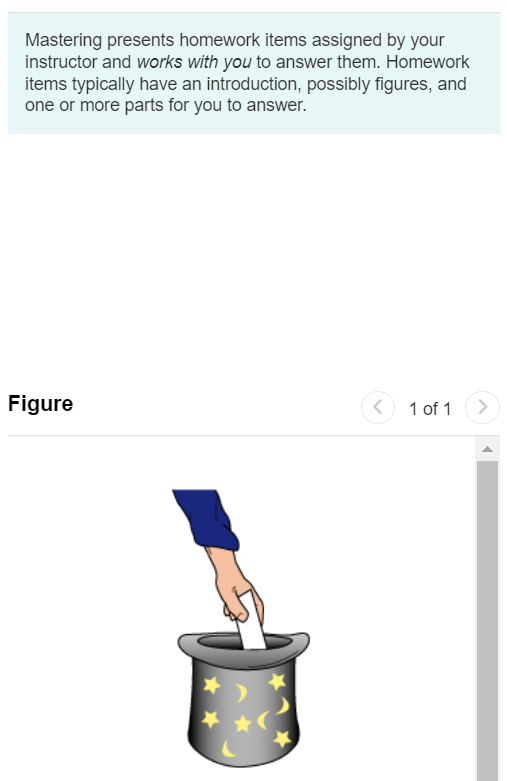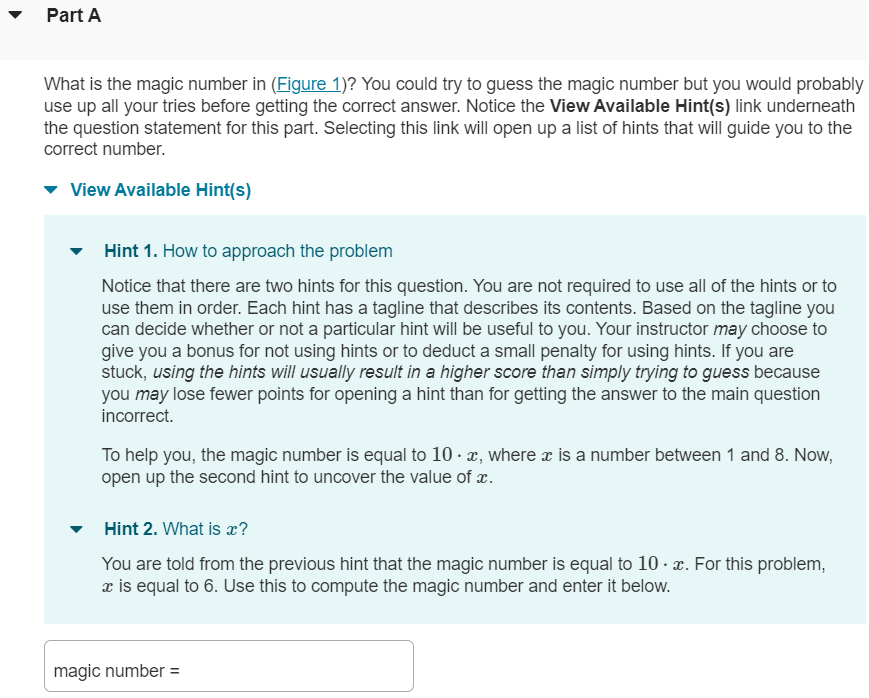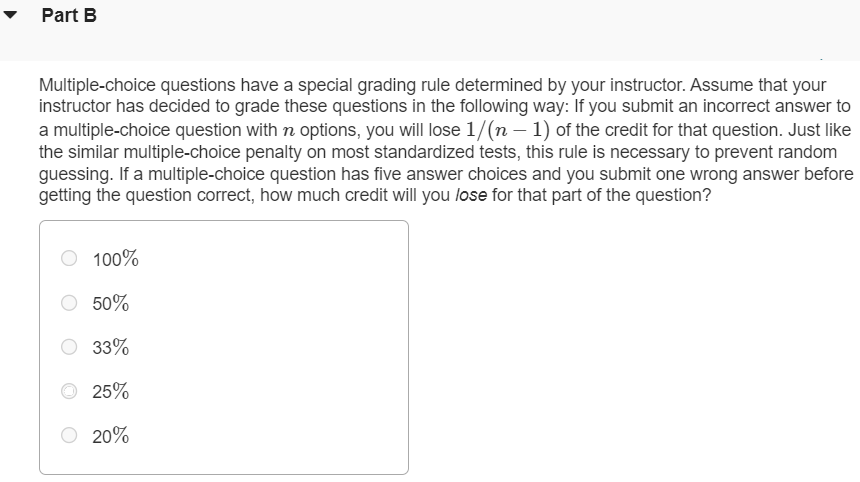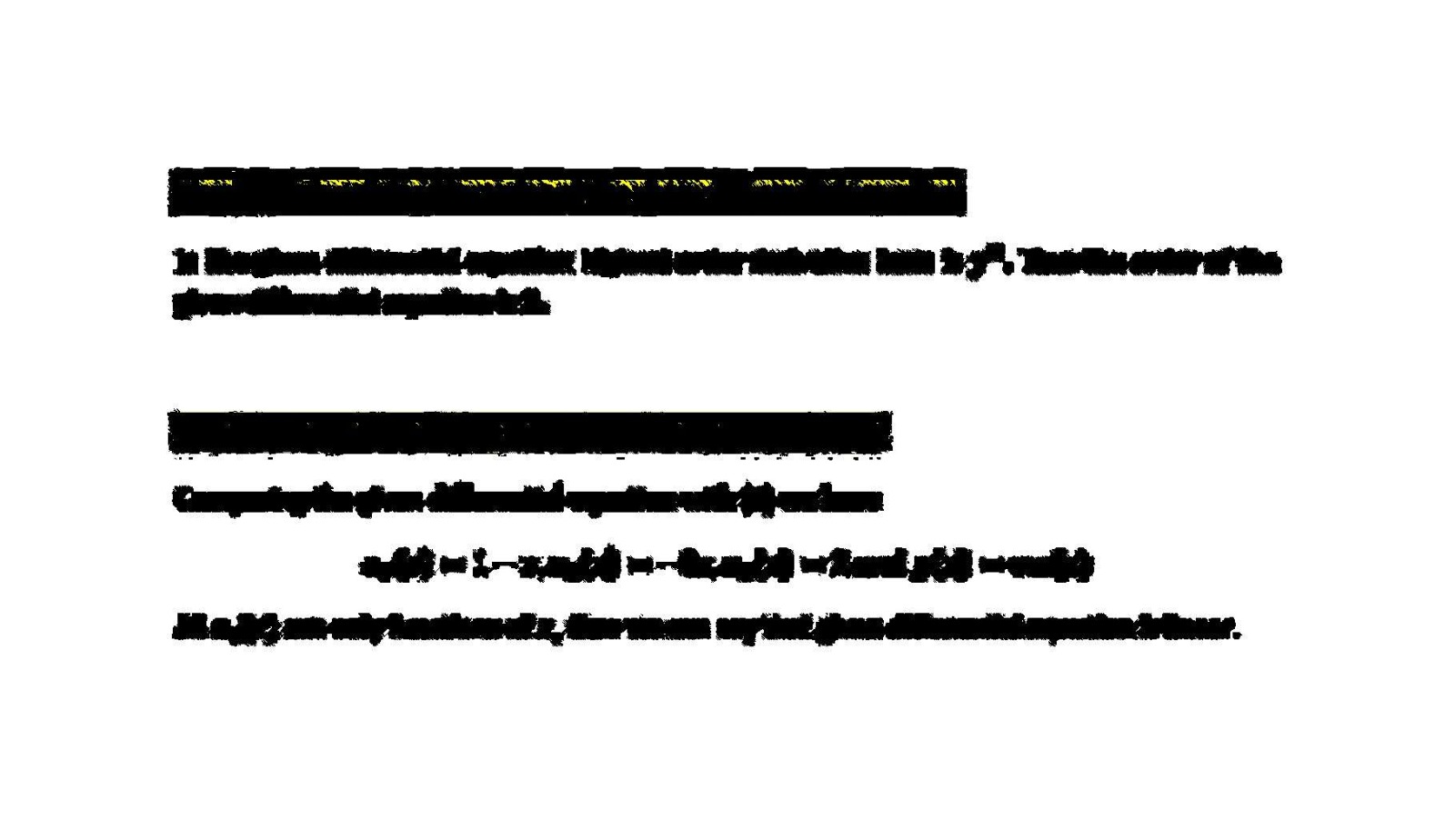Mastering presents homework items assigned by your instructor and works with you to answer them. Homework items typically have an introduction, possibly figures, and one or more parts for you to answer. Part A What is the magic number in (Figure 1)? You could try to guess the magic number but you would probably use up all your tries before getting the correct answer. Notice the View Available Hint(s) link underneath the question statement for this part. Selecting this link will open up a list of hints that will guide you to the correct number. Hint 1 for Part A. How to approach the problem Notice that there are two hints for this question. You are not required to use all of the hints or to use them in order. Each hint has a tagline that describes its contents. Based on the tagline you can decide whether or not a particular hint will be useful to you. Your instructor may choose to give you a bonus for not using hints or to deduct a small penalty for using hints. If you are stuck, using the hints will usually result in a higher score than simply trying to guess because you may lose fewer points for opening a hint than for getting the answer to the main question incorrect. To help you, the magic number is equal to 10⋅x, where x is a number between 1 and 8. Now, open up the second hint to uncover the value of x. Hint 2for Part A. What is x? You are told from the previous hint that the magic number is equal to 10⋅x. For this problem, x is equal to 6. Use this to compute the magic number and enter it below. magic number Part B Multiple-choice questions have a special grading rule determined by your instructor. Assume that your instructor has decided to grade these questions in the following way: If you submit an incorrect answer to a multiple-choice question with n options, you will lose 1/(n-1) of the credit for that question. Just like the similar multiple-choice penalty on most standardized tests, this rule is necessary to prevent random guessing. If a multiple-choice question has five answer choices and you submit one wrong answer before getting the question correct, how much credit will you lose for that part of the question? 100% 50% 33% 25% 20%





You'll get a detailed, step-by-step and expert verified solution.
 Work With Experts to Reach at Correct Answers
Work With Experts to Reach at Correct Answers